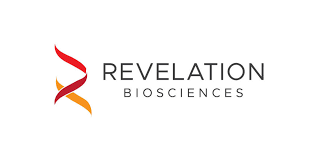SAN DIEGO– Revelation Biosciences Inc. (NASDAQ: REVB) (the “Company” or “Revelation”), a life sciences company that is focused on the development of immunologic-based therapies for the prevention and treatment of disease, today announced positive results in a preclinical model of acute kidney injury (AKI), chronic kidney disease (CKD). Treatment with REVTx-300 significantly reduced renal cortical fibrosis in a dose dependent manner in the medium and high dose groups (21.7% reduction (p <0.05) and 29.3% (p < 0.05), respectively) and was comparable to a known TGF-β inhibitor of fibrosis used as a positive control (38.1% reduction (P < 0.05))
“These promising preclinical results offer hope of new prophylactic option for preventing the deleterious effects of AKI following multiple types of surgery,” said Lakhmir Chawla, M.D. at the Jennifer Moreno Department of Veterans Affairs Medical Center, San Diego, CA, and a leading expert in AKI, “as well as potential new treatment options for active acute kidney injury and chronic kidney disease. I look forward to collaborating with Revelation as REVTx-300 moves through the development process.”
The unilateral ureteral obstruction (UUO) model is appropriate for studying the anti-inflammatory and anti-fibrotic effects of potential new therapies for acute and chronic kidney disease as complete ureteral obstruction of one kidney results in significant inflammation and subsequent fibrosis of the affected kidney over a 7-day period.
The present study consisted of 6 groups with the following outcomes on renal cortical fibrosis as measured by detection of collagen deposition using picosirius red stained histology sections assessed at three different sampling depths.
- Group 1 animals had no UUO surgery and received vehicle only (collagen deposition: 2.36 ± 0.44%).
- Group 2 animals had UUO surgery and received vehicle only (collagen deposition: 2.36 ± 0.44%).
- Group 3 animals had UUO surgery and received SB-525334, a known TGF-β inhibitor of fibrosis (collagen deposition: 3.02 ± 0.37%, 38.1% reduction vs Group 2, p < 0.05).
- Group 4 animals had UUO surgery and received 0.1 mg/kg REVTx-300 (collagen deposition: 4.96 ± 0.95 %, 0% reduction vs Group 2).
- Group 5 animals had UUO surgery and received 0.3 mg/kg REVTx-300 (collagen deposition: 3.82 ± 0.91%, 21.7% reduction vs Group 2, p < 0.05).
- Group 6 animals had UUO surgery and received 0.9 mg/kg REVTx-300 (collagen deposition: 3.45 ± 0.54%, 29.3% reduction vs Group 2, p < 0.05).
Revelation will continue evaluating the potential of REVTx-300 in additional preclinical models including CKD, nonalcoholic steatohepatitis (NASH), and myocarditis to identify optimal dosing conditions required for prevention and resolution of inflammation and fibrosis. Revelation plans to initiate Phase 1 clinical studies in the first half of 2023.
“This preclinical data along with observations from our previous clinical studies support the validity and promise of our PHAD-based programs to beneficially modulate the inflammatory process,” said James Rolke, Chief Executive Officer of Revelation. “With the increased prevalence of inflammation-mediated diseases, we remain focused on leveraging PHAD-specific stimulation of TLR4 to discover therapies to provide relief from conditions including AKI, CKD, myocarditis, and NASH.”



